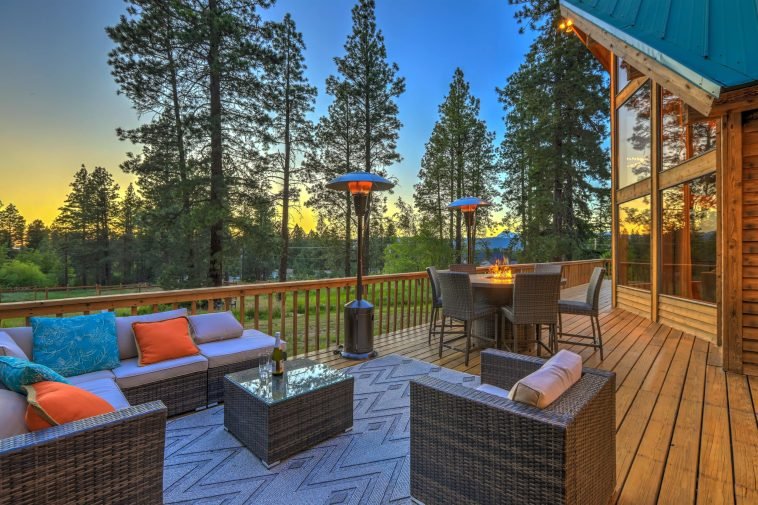Introduction.
If you’re interested in generating passive income and love the idea of managing short-term rentals but don’t own any property, you’re in luck. Hosting other people’s properties on Airbnb is entirely possible and increasingly popular.
It can be a win-win situation: the property owner gets reliable rental management, and you get to make money through hosting fees.
But it’s not as simple as putting up a listing and watching the bookings roll in; this approach comes with its own unique set of challenges and opportunities.
In this guide, I’ll walk through everything you need to know to successfully manage and host other people’s properties on Airbnb—from getting permission and setting up the listing to handling maintenance and maximizing profits.
Let’s dig into what it takes to get started, and how you can build a profitable hosting business on Airbnb without ever owning a property.
What Is Airbnb Property Management, and How Does It Work?
Airbnb property management is the process of overseeing short-term rentals on behalf of a property owner.
The property manager (you) handles everything from creating the listing and communicating with guests to managing the cleaning schedule, check-ins, and even pricing adjustments. The property owner allows you to use their space in exchange for an agreed-upon share of the profits or a management fee.
You don’t need to own a property to get started, but you do need to be organized, communicative, and proactive.
You’re essentially acting as a mini property manager, with the goal of ensuring that guests have a positive experience while the property remains in top shape.
How Do I Host Other People’s Properties On Airbnb?
Here’s how to get started in the world of hosting other people’s properties on Airbnb.
1. Get Permission from the Property Owner.
The most crucial step is securing permission from the property owner to use their home as an Airbnb listing.
Some property owners may be wary of short-term rentals due to concerns about property wear and tear or disturbances in the neighbourhood. Prepare a clear proposal that highlights:
- Benefits of Airbnb hosting: Emphasize potential earnings, a steady stream of income, and the fact that you’ll handle all the logistics.
- Details of your services: Be transparent about how you’ll manage bookings, cleanings, and maintenance to keep the property in top condition.
- Insurance and risk mitigation: Address concerns by showing that Airbnb offers Host Protection Insurance, which can help cover liability. If necessary, consider additional insurance policies that might add peace of mind.
2. Sign a Hosting Agreement.
Once the property owner is on board, formalize your partnership with a detailed hosting agreement. This contract should cover:
- Revenue split or management fee
- Responsibilities for maintenance and repairs
- Expectations around property upkeep, cleanliness, and guest policies
- Exit terms or notice period in case either party wants to discontinue
Having a clear agreement helps both sides understand their roles and minimizes the chances of disputes.
3. Create an Outstanding Listing.
A successful Airbnb listing requires more than just basic information. To stand out, your listing should:
- Include high-quality photos: Invest in professional photography or make sure you take clear, well-lit images to showcase the property.
- Craft an engaging description: Highlight unique features of the property and nearby attractions that might interest potential guests.
- Set competitive pricing: Check similar listings in the area to set a fair price. You can always adjust rates based on demand and seasonality.
- Add extras: Free Wi-Fi, welcome snacks, or local area guides can help your listing stand out.
4. Set Up a Smooth Guest Experience.
The guest experience can make or break your hosting success. High ratings and reviews lead to more bookings, so consider the following:
- Automate communications: Use Airbnb’s automated messaging features for check-in instructions and other important details. Clear communication makes a positive impression.
- Maintain a spotless property: Cleanliness is key on Airbnb. Either hire a cleaning service or ensure that the property is thoroughly cleaned after each stay.
- Be accessible: Provide a contact number for any questions or emergencies. Responsiveness is a major factor in good guest reviews.
5. Manage Pricing and Adjustments.
Many hosts use Airbnb’s Smart Pricing tool, which automatically adjusts pricing based on demand and similar listings.
Alternatively, there are third-party tools like Wheelhouse and Beyond Pricing for a more tailored approach. Dynamic pricing is essential to maximize revenue while staying competitive.
6. Handle Maintenance and Troubleshooting.
Property maintenance can be a headache if you’re not prepared. Have a plan in place for quick responses to guest complaints, repairs, and emergencies.
Establishing a relationship with a local handyman or maintenance company is invaluable if something needs immediate attention.
Pros and Cons of Hosting Other People’s Properties on Airbnb
Pros:
- Low startup costs: No need to invest in property purchases, which significantly reduces startup expenses.
- Passive income potential: With proper management, hosting can provide a steady income stream without the commitment of ownership.
- Flexibility: You can work from anywhere and set your own hours, managing the property remotely.
Cons:
- Reliant on property owners: You’re dependent on the property owner’s ongoing cooperation and satisfaction.
- Legal and regulatory hurdles: Short-term rental regulations vary, and in some cities, you might need specific permits or licenses.
- Risk of damage or loss: Although insurance options exist, the risk of property damage is always present and needs careful management.
FAQs About Hosting Other People’s Properties on Airbnb
Q: Do I need a license or permit to host someone else’s property? A: It depends on the city and property type. Some cities require licenses for short-term rentals, while others may have restrictions on non-owner-hosted rentals. Always check local regulations to ensure compliance.
Q: How much money can I make hosting other people’s properties? A: Earnings vary based on location, demand, and the property’s size and amenities. According to AirDNA, a data analytics company for short-term rentals, Airbnb hosts in major U.S. cities make an average of $924 per month. This can be higher for popular tourist locations or larger properties.
Q: How should I handle guest complaints if I don’t live near the property? A: Remote management tools and responsive customer service are your best allies. Many hosts work with local services or on-call contacts who can address urgent needs. Virtual tools like cameras or smart locks also provide some control over guest interactions and security.
Q: Is Airbnb insurance enough to protect the property? A: Airbnb provides some insurance through its Host Protection program, but many hosts find it’s best to have additional insurance to cover specific risks or damages not included in Airbnb’s plan. Be clear on coverage limits and discuss options with the property owner.
Q: Can I use property management software for one or two properties? A: Yes. Even for a single listing, software like Guesty or Hostfully can help with automated booking management, pricing updates, and communication, making it easier to stay organized.
Conclusion
Hosting other people’s properties on Airbnb offers a unique opportunity to earn income while managing short-term rentals, all without property ownership.
However, it requires careful planning, great communication with property owners, and top-notch guest service to be successful. For those willing to invest time and effort, hosting on Airbnb can be a highly rewarding venture.
So, are you ready to dive into hosting and turn someone else’s property into a top-rated listing? Or do you have any lingering concerns about handling guest expectations and property maintenance?





GIPHY App Key not set. Please check settings